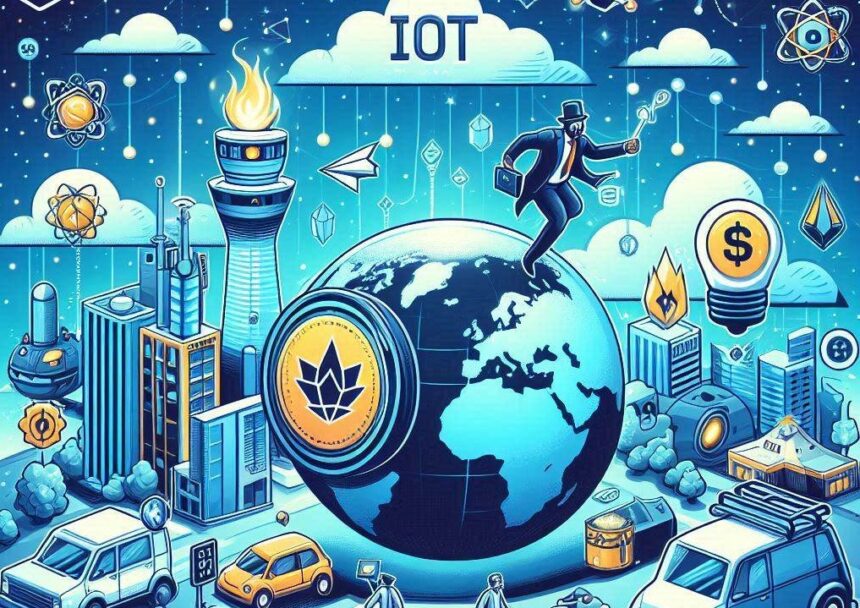Blockchain has swiftly made its mark in the world of technology. It has gracefully disrupted various sectors. Lately, Artificial Intelligence (AI) and the Internet of Things (IoT) are also being integrated with it. At such a crossroad is the IOTA blockchain project, which is positioned to utilize the potential of IoT s well as blockchain. Let us understand what makes IOTA so different.
The tangle blockchain system has placed IOTA at a different position. It is basically a departure from conventional cryptocurrencies. Tangle operates as a Directed Acyclic Graph (DAG) and here the nodes validate and confirm transactions. Unlike traditional consensus mechanisms like Proof-of-Work or Proof-of-Stake, IOTA relies on this innovative structure.
IOTA in simple term is an open-source initiative and addresses the limitations of existing blockchain projects. It mainly focuses on mining centralization, scalability and interoperability as well. Its primary goal is to provide crypto and blockchain solutions for the IoT industry. It facilitates efficient fund transfers as well as payments among IoT devices.
IOTA was founded by Sergey Ivancheglo, Serguei Popov, David Snsteb and Dominik Schiener in 2016 and the project is now managed by the non-profit IOTA Foundation, which is committed to developing solutions for machine-to-machine and machine-to-human communication.
IOTA in fact originated as the Jinn project in 2014 and it was basically aimed at IoT hardware and software. IOTA thereafter underwent rebranding in 2015 as there were some regulatory concerns. It entered the crypto market in 2017.
About the function of IOTA, it utilizes Tangle to validate transactions without the need for miners, validators or transaction fees. As an aftermath, it ensures scalability and eliminates high gas fees. It thereafter offers superior functionality compared to traditional blockchain networks like Bitcoin and Ethereum.







